第60章 THE MERRY WIDOWS(3)
On the 2nd of August the same two professors, aided by a third, M.Barruel, carried out a further examination of the body.Their testimony ishighly technical.It is also rather revolting.I am conscious that, dealing, as I have had to, with so much arsenical poisoning (the favourite weapon of the woman murderer), a gastric odour has been unavoidable in many of my pages--perhaps too many.For that reason I shall refrain from quoting either in the original French or in translation more than a small part of the professors' report.I shall, however, make a lay shot on the evidence it supplies.Boursier's interior generally was in foul condition, which is not to be explained by any ingestion of arsenic, but which suggests chronic and morbid pituitousness.The marvel is that the man's digestion functioned at all.This insanitary condition, however, was taken by the professors, as it were, in their stride.They concentrated on some slight traces of intestinal inflammation.
One observed,'' their report went on,
about the end of the ileum some grains of a whitish appearance and rather stubbornly attached.These grains, being removed, showed all the characteristics of white arsenic oxide.Put upon glowing charcoal they volatilized, giving off white smoke and a garlic odour.Treated with water, they dissolved, and the solution, when brought into contact with liquid hydrosulphuric acid, precipitated yellow sulphur of arsenic, particularly when one heated it and added a few drops of hydrochloric acid.
These facts (including, I suppose, the conditions I have hinted at) allowed them to conclude (a) that the stomach showed traces of inflammation, and (b) that the intestinal canal yielded a quantity of arsenic oxide sufficient to have produced that inflammation and to have caused death.
The question now was forward as to where the arsenic found in the body had come from.Inquiry established the fact that on the 15th of May, 1823--that is to say, several weeks before his death--Boursier had bought half a pound of arsenic for the purpose of destroying the rats in his shop cellars.In addition, he had bought prepared rat-poison.Only a part of those substances had been used.The remaining portions could not be found about the shop, nor could Mme Boursier make any suggestions for helping the search.She declared she had never seen anyarsenic about the house at all.
There was, however, sufficient gravity in the evidences on hand to justify a definite indictment of Mme Boursier and Nicolas Kostolo, the first of having poisoned her husband, and the second of being accessory to the deed.
The pair were brought to trial on the 27th of November, 1823, before the Seine Assize Court, M.Hardouin presiding.The prosecution was conducted by the AvocatGeneral, M.de Broe.Maitre Couture defended Mme Boursier.Maitre Theo.Perrin appeared for Kostolo.
The case created great excitement, not only in Paris, but throughout the country.Another poisoning case had not long before this occupied the minds of the public very greatly--that of the hypocritical Castaing for the murder of Auguste Ballet.Indeed, there had been a lot of poisoning going on in French society about this period.Political and religious controversy, moreover, was rife.The populace were in a mood either to praise extravagantly or just as extravagantly to condemn.It happened that rumour convinced them of the guilt of the Veuve Boursier and Kostolo, and the couple were condemned in advance.Such was the popular spite against Mme Boursier and Kostolo that, it is said, Maitre Couture at first refused the brief for the widow's defence.He had already made a success of his defence of a Mme Lavaillaut, accused of poisoning, and was much in demand in cases where women sought judicial separation from their husbands.People were calling him Providence for women.'' He did not want to be nicknamed Providence for poisoners.'' But Mme Boursier's case being more clearly presented to him he took up the brief.
The accused were brought into court.
Kostolo was about thirty years of age.He was tall, distinctly good- looking in an exotic sort of way, with his dark hair, complexion, and flashing eyes.He carried himself grandly, and was elegandy clad in a frac noir.Not quite, as Army men were supposed once to say, the clean potato, it was easy enough to see that women of a kind would be his ready victims.It was plain, in the court, that Master Nicolas thought himself the hero of the occasion.
There was none of this flamboyance about the Widow Boursier.Shewas dressed in complete mourning, and covered her face with a handkerchief.It was manifest that, in the phrase of the crime reporters,she felt her position keenly.''The usual questions as to her name and condition she answered almost inaudibly, her voice choked with sobs.
Kostolo, on the contrary, replied in organ tones.He said that he was born in Constantinople, and that he had no estate.
The acte d'accusation was read.It set forth the facts of the adulterous association of the two accused, of the money lent by Mme Boursier to Kostolo, of their meetings, and all the suspicious circumstances previous to the death of the epicier.
The cook-girl, Josephine Blin, had prepared the potage au riz in the kitchen, using the small iron pan that it was her wont to employ.Having made the soup, she conveyed it in its terrine to a small secretaire in the dining-room.This secretaire stood within the stretch of an arm from the door of the comptoir in which Mme Boursier usually worked.According to custom, Josephine had divided the potage in two portions--one for Boursier and the other for the youngest child.The youngster and she had eaten the second portion between them, and neither had experienced any ill-effects.
Josephine told her master that the soup was ready.He came at her call, but did not eat the soup at once, being otherwise occupied.The soup stood on the secretaire for about fifteen minutes before Boursier started to eat it.